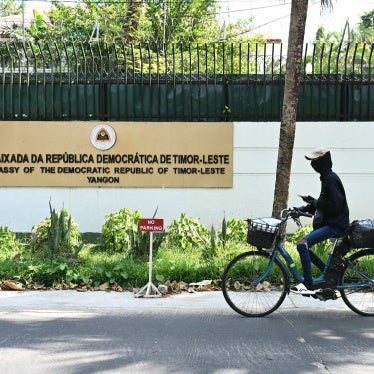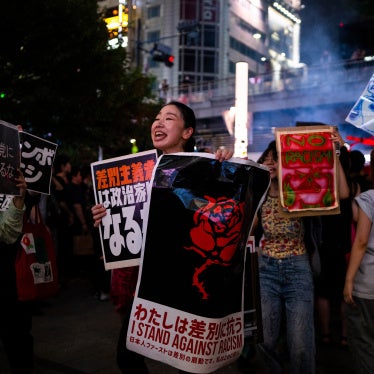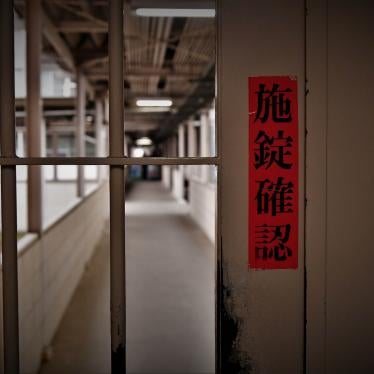On April 26, after months awaiting a response, Japan’s Foreign Ministry announced it had received confirmation from Myanmar’s military junta that it misused two Japan-funded civilian vessels to transport soldiers and weapons in Rakhine State in September 2022.
A Japanese Foreign Ministry spokesperson said Japan protested the misuse and the junta “expressed regret over the situation,” saying it will do its “utmost to prevent recurrence.”
Human Rights Watch reported on the incident in October 2022 after analyzing letters from Myanmar officials that stated that two of three vessels delivered by Japan between 2017 and 2019 had been used to transport more than 100 soldiers and materiel to the town of Buthidaung in Rakhine State, where the military is fighting the Arakan Army, an ethnic armed group. The Japanese government had been requesting information from the junta following earlier local media reports.
Since Myanmar’s military staged a coup on February 1, 2021, security forces have killed more than 3,400 people and arrested over 21,000, with more than 17,000 currently detained, according to the Assistance Association for Political Prisoners. In recent weeks, the military has been implicated in airstrikes in Sagaing State that killed dozens of civilians, and a ground assault in Magway Region that burned a Japan-funded hospital. In March, 22 people were massacred after the military captured a town in Shan State, with many of the victims bearing marks of torture, according to the coroner.
Prior to the coup, Myanmar’s security forces committed crimes against humanity and genocidal acts against the Rohingya Muslim minority in Rakhine State, forcing them to flee to Bangladesh, where nearly a million Rohingya are currently living in overcrowded refugee camps. An estimated 600,000 Rohingya remain in Rakhine State, where they are subject to persecution and violence, denied proper freedom of movement, and cut off from access to adequate food, health care, education, and livelihoods.
The Myanmar military’s egregious and ongoing rights violations should be reason enough for the Japanese government to reject the junta’s hollow promise to abide by international law.
A lukewarm response will only embolden the junta at the expense of Japan’s reputation, including with the people of Myanmar whom the Japanese government seeks to assist. Japan should instead suspend non-humanitarian aid to Myanmar and impose targeted sanctions on military leaders and military-owned conglomerates.









